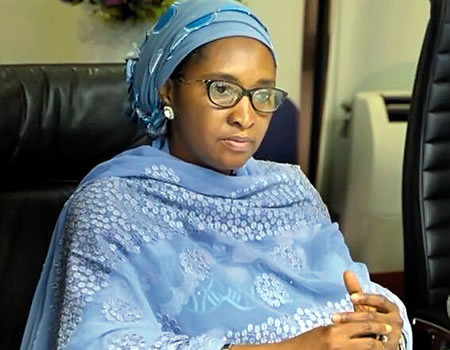Africa Press-Nigeria:
The outbreak of novel coronavirus disease (COVID-19) has forced countries around the world to resort to fighting for themselves and discovering new sources of revenue to lubricate the wheels of their economies. CHIMA NWOKOJI unravels secrets behind unclaimed monies in Nigerian banks as calls for review of laws guiding dormant accounts intensify.
Although the guideline released by the Central Bank of Nigeria (CBN) with effect from October 7, 2015 for management of dormant and inactive accounts has been in operation, Deposit Money Banks in reality have complied only partially. This has raised concerns among bank account holders, regulators and other stakeholders.
The guideline carefully sets operational standards for banks and Other Financial Institutions (OFls) in line with best practices and to reinforce the rights of depositors and/or customers and finally curb possible abuses. Like every other document from such regulatory institutions, this is good but how is it being implemented?
What the CBN says
A major objective is to eliminate the possibility of banks converting dormant accounts’ balances to income; and strengthen risk management and internal control processes. Yet, evidences of shocking violations abound.
According to the CBN, an account shall become inactive if there has been no customer or depositor-initiated transaction for a period of six months after the last customer or depositor-initiated transaction. In this case the customer shall not be required to provide any documentation to activate the account. Simple deposit or withdrawal shall suffice to activate the account. Also, a bank account shall be classified as dormant if there has been no customer or depositor-initiated transaction in it for a period of one (1) year after the last customer or depositor-initiated transaction.
“When the account becomes dormant, the bank shall institute controls consistent with its precautionary policies, including surveillance procedures and second level authorization. To make such account active, the customer is to provide satisfactory evidence of account ownership, means of identification and present place of residence,” the guidelines stated.
Interestingly, CBN said unclaimed funds shall be categorized as: “Proceeds of stale local and/or foreign currency drafts not yet presented for payment by beneficiaries; Funds received from a correspondent bank without sufficient details as to the rightful beneficiary and/or a recall of funds made to the remitting bank to which the Nigerian bank’s account had not been debited; and judgment debt for which the judgment creditor has not claimed the amount of judgment award.”
It requires interest-bearing accounts to retain their interest earning status during the period of dormancy and banks are expected to continue to monitor such accounts that show tendencies of inactivity and initiate actions for their reactivation or protection from wrong usage.
Such actions according to the CBN shall include, though not limited to any of the following: SMS, e-mail, visitation, and/or phone calls. In all cases, the cost of monitoring the accounts and contacting the customers shall be borne by the bank.
Once accounts become dormant, they shall be reported quarterly to Banking Supervision or Other Financial Institutions Supervision Department of the CBN, as the case may be, along with efforts made by the obligor bank to locate the owners or their personal representatives.
The guideline further directed that three months to dormancy, the bank shall notify the account holder of the status of the account. For individual accounts that the bank cannot reach the account holder during the three (3) months period, it shall contact the next-of-kin to assist in locating the account holder(s). This will be done within one month after the account has been declared dormant. (For corporate accounts the bank shall contact the directors of the entity or seek information from the Corporate Affairs Commission on the Directors).
“Dormant accounts balances shall be covered by Deposit Insurance Scheme. Banks that have in the last five (5) years from the date of these guidelines, appropriated credit balances in dormant accounts to income are to reclassify such accounts to deposits not later than six (6) months from the effective date of the guidelines,” the CBN stated.
Shocking revelations about dormant/ inactive bank accounts
The Nigeria Inter-Bank Settlement System Plc (NIBSS) published a report in April 2020, indicating that Nigerians abandoned 300,000 bank accounts in the first quarter of 2020 (Q1’20). The data showed that the number of inactive bank accounts rose by 0.7 per cent or 300,000 to 45.87 million in Q1’20 from 45.57 million in Q4’19. It also reported that 9.1 million Bank Verification Numbers (BVN) are inactive in various banks nationwide as at December 31, 2019. This implies that in just one year, about ten million bank accounts recorded zero transactions.
Analysis of the NIBSS report did not show why those BVNs remained inactive but experts linked some of them to possible death of the owners, and inability to service the accounts due to income stress, fraud and other reasons. So, in this period of financial difficulties when not only individuals and companies but governments are running from pillar to post to borrow money, economic, finance and public policy experts are calling for such funds to be brought into the economy through approved beneficiaries.
This call is similar to the Federal Government’s request in 2018, for an order of final forfeiture of all the funds contained in all accounts without Bank Verification Numbers in the country’s 19 commercial banks. But the Federal High Court in Abuja in June that year, rejected the request.
Rather, Justice Nnamdi Dimgba affirmed his ruling of October 17, 2017, which was modified on November 15, 2017, directing the 19 commercial banks in the country to freeze all accounts without the BVN and advertise the details of the accounts, including the amounts in them in a widely read newspaper. Till today, nothing of such has been published.
Nigerian Tribune has beamed its searchlight and unraveled why dormant accounts are rising like the COVID-19 cases. As the number of dormant accounts rises, obstacles to getting the funds are not being looked into, while obvious manipulations by interested individuals continue unabated.
Although there are allegations that some money-laundering customers abandoned the accounts as the noose are tightened on them by the Economic and Financial Crimes Commission, as they don’t want activities in those accounts traced to them, many are confirmed to belong to dead people.
Experts recognize three events that terminate the operation of an account: death, bankruptcy and insanity. If any of these happens, the operation of that account is terminated and no one will have access to the account unless there is a letter of administration and this letter is not easy to get.
Nigerian Tribune has beamed its searchlight and unraveled why dormant accounts are rising like the COVID-19 cases. As the number of dormant accounts rises, obstacles to getting the funds are not being looked into, while obvious manipulations by interested individuals continue unabated.
Although there are allegations that some money-laundering customers abandoned the accounts as the noose are tightened on them by the Economic and Financial Crimes Commission, as they don’t want activities in those accounts traced to them, many are confirmed to belong to dead people.
Experts recognize three events that terminate the operation of an account: death, bankruptcy and insanity. If any of these happens, the operation of that account is terminated and no one will have access to the account unless there is a letter of administration and this letter is not easy to get.
Investigations revealed that when relations of the deceased are aware, it takes years to obtain this letter, not to talk of when they are not aware that such account exists.







